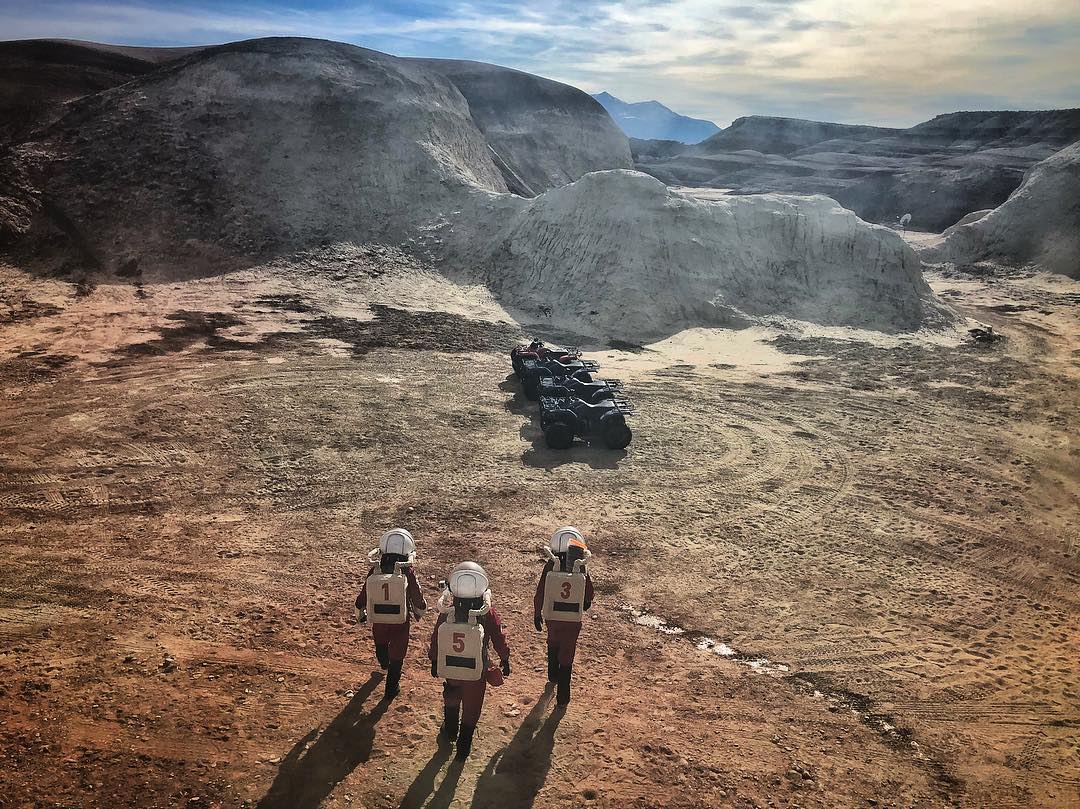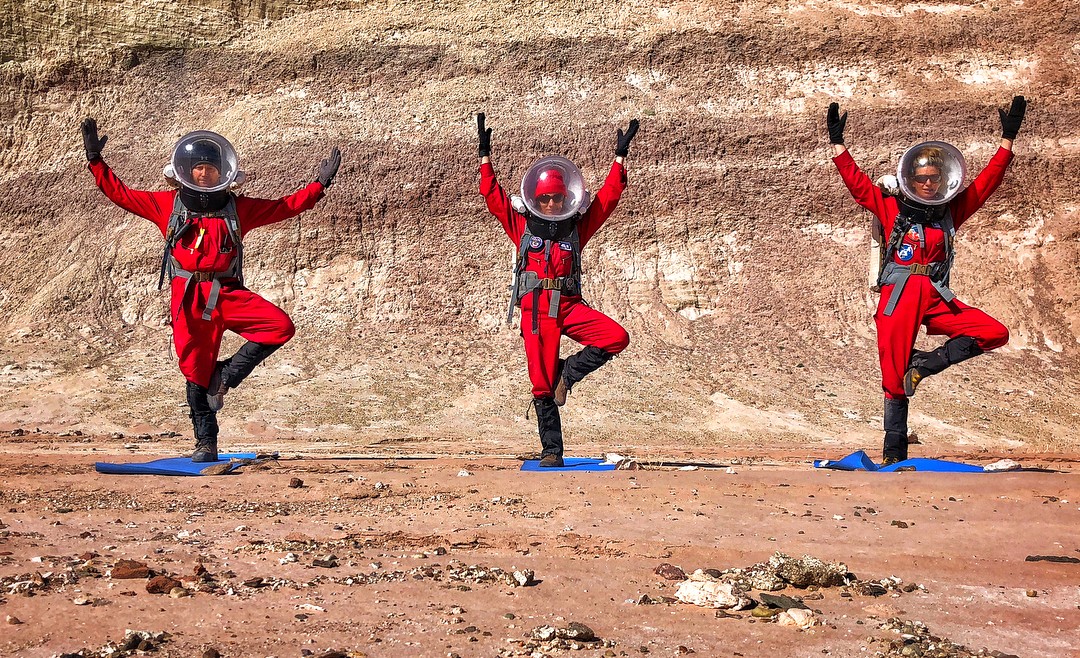Dealing with Isolation
by Zac Trolley
During the winter of 2018, I spent two weeks at the Mars Desert Research Station (MDRS) in Utah as a citizen astronaut. The MDRS is an analog mission site, meaning it’s used to run experiments as if we were actually on Mars. It’s a facility for teams of scientists to dry run experiments and procedures, adding to the body of knowledge before we actually send people to Mars.
These simulated missions try and mimic real conditions as much as possible. We were not able to leave without a “spacesuit” on, we ate freeze-dried food, followed strict protocols, and enforced a communication delay between “Mars” and Earth. As the crew engineer for the MDRS188 team, I was responsible for the operation of the facility and to support the experiments being conducted.

But my biggest challenge was dealing with isolation. As the whole world is now finding out, isolation is a skill.
I learned a lot about myself during those two weeks. Here are some tips that I learned while dealing with isolation.
Schedule your downtime
In small confined spaces it’s easy for work to blend in with relaxation. While it may seem that working late hours is more productive, this leads to burnout very quickly. When you are working in the same place that you relax in, it’s extremely important to schedule your downtime.
While in simulation, we had set time where we would drop what we were doing any commit to downtime. We scheduled movie nights, played games, did yoga; anything but work. This allowed our minds to take a break and relax. Just like a muscle, you need to allow rest time for your brain else it will get overworked.
Scheduling downtime every day meant that we were able to start every day fresh and relaxed.
Know your personal status
As the COVID-19 situation unfolds, it’s important to understand how those changes are affecting you. Each person, city, and country will be affected differently. We are programmed to deal with adversity, but all too often our coping mechanism is to power through issues.
While that can work in the short term, it’s a disastrous longterm solution.
During the mission, we had morning briefings to go over our daily and weekly objectives. These meetings followed a normal work agenda, but we also spoke about personal issues. We talked about how we were feeling, how yesterday went, and how we wanted to adjust our work to maximize our output.
Each person needed to understand their own status before they could properly share it with the team.
Reflecting on your own status allows you to adjust your actions. What worked yesterday may not work today. The schedule you had in the office may not work at home. You need to experiment to find what works for you. Try 10 pushups before a meeting to replace your 10 am walk, or maybe you need to schedule a 5 pm call with your team to gossip about issues at the office.
Baking sourdough bread may have been fun week 1, but it’s lost its lustre on week 4. We are all in a stressful situation, and it’s necessary to make adjustments along the way.
Doing honest checkups with yourself allows you to adjust your behaviour to fit your needs.

Never Stop Communicating
When we spent long periods of time alone, it can become a habit to keep to ourselves. Dynamic situations are when we need to communicate the most. You need to take extra efforts to reach out to people and maintain communication links with them.
The MDRS is a remote facility without anyone else for miles around. There is also an imposed communication delay to mimic the distance from the Earth to Mars. It truly felt like we were all alone. Right from day one, we made sure to keep communication between the team open, honest, and frequent. It was vitally important for the success of the mission and our own mental health.
You should put extra effort into communicating with your family, friends, and coworkers more than ever in periods of stress.
Have fun!
Fun is extremely important to your mental health. It times of prolonged stress it’s more important to actively look for fun in order to calm your central nervous system.
For long-duration space missions, the human element is the biggest variable. All the machines and hardware can be analyzed down to the millimetre, but the humans are always changing. A big research component of analog missions is testing team dynamics and maximizing performance. Having fun is a big part of being human, and leads to better performance. On our mission having fun was an explicit component that we researched.

Remember, isolation is a marathon, not a sprint. You have to adjust the way you tackle new challenges so that you can maintain your work output. This requires you to be honest with yourself and seek guidance from others. It’s a skill like any other, and it takes practice.